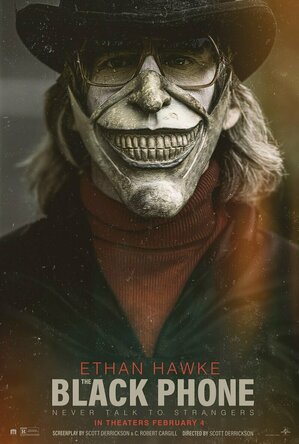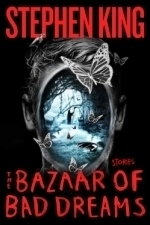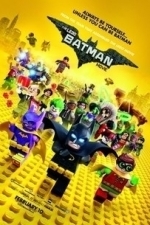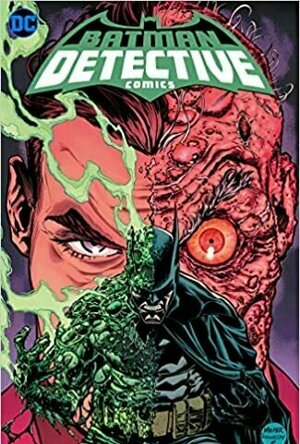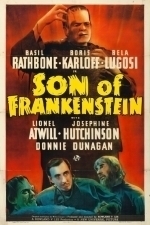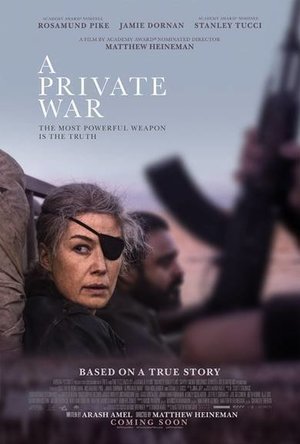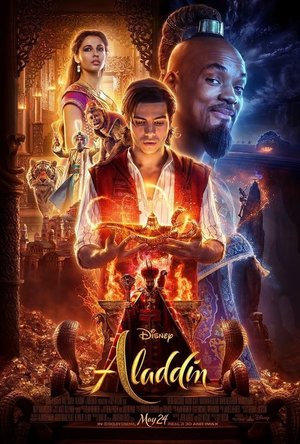Search
Search results

DoorDash - Food Delivery
Food & Drink and Lifestyle
App
Food delivery to your door from the widest selection of restaurants near you. Browse more than...
BankofMarquis (1832 KP) rated The Black Phone (2022) in Movies
Jul 19, 2022
Tense and Suspenseful
Part STRANGER THINGS and Part IT, the new Blumhouse film, THE BLACK PHONE, is a surprisingly effective horror/thriller that is reminiscent of the better Stephen King stories - and that just might be because the short story for which this film is based on is written by Joe Hill - Stephen King’s son.
Wisely set in a time before cell phones (like both Stranger Things and It), THE BLACK PHONE tells the tale of a small town in Colorado that suddenly falls victim to “THE GRABBER” - an individual who grabs young teenage boys and kills them.
Smartly Directed by Scott Derrickson (the first DOCTOR STRANGE film), THE BLACK PHONE is effective for it focuses on the isolation of being in captivity, the anxiety of not knowing when someone is going to come through the door of the cell and the relationships of the young teens caught in “The Grabber’s” web. Credit for this, of course, goes to Derrickson who dropped out of Directing DOCTOR STRANGE IN THE MULTIVERSE OF MADNESS (over “creative differences”) and chose this passion project as his salve - and the passion shows. It must also be pointed out that Derrickson, wisely, opts to up the tension of this film, rather than the gore, so this movie becomes a suspense flick and not torture-porn.
Derrickson also draws very good performances from the young actors playing the main roles of this film - Mason Thames (Finney), Madeleine McGraw (Gwen), Tristan Pravong (Bruce), Jacob Moran (Billy) and Miguel Cazarez Mora (Robin). All are believable in their well written roles bringing more than just one-dimension to their characters.
These kids are more than ably joined by adult actors like James Ransone (IT: CHAPTER TWO), Jeremy Davies (TV’s LOST) and E. Roger Mitchell (OUTER BANKS). All of these folks bring gravitas and reality to a story that does drift into the un-reality at times.
And then there is the performance of the always good Ethan Hawke as the villain of this piece - THE GRABBER. It is a masterful performance by Hawke who brings humanity to this monster. Almost every actor that plays a villain say that they try to see the film from the villain’s point of view and Hawke brings that to this character in spades and (almost) makes one want to root for him. It is one of the better villains realized on film in the last few years.
One quibble with The Black Phone, is that it does have a tendency to sag a bit (especially in the middle). It is in the middle of the film that one can tell that this movie was based on a SHORT story and so, by necessity, there is some padding.
But that is picking a nit in what is a smart and tense film, one that will have you on the edge of your seat until the end.
Letter Grade: A-
8 stars (out of 10) and you can take that to the Bank(ofMarquis)
Wisely set in a time before cell phones (like both Stranger Things and It), THE BLACK PHONE tells the tale of a small town in Colorado that suddenly falls victim to “THE GRABBER” - an individual who grabs young teenage boys and kills them.
Smartly Directed by Scott Derrickson (the first DOCTOR STRANGE film), THE BLACK PHONE is effective for it focuses on the isolation of being in captivity, the anxiety of not knowing when someone is going to come through the door of the cell and the relationships of the young teens caught in “The Grabber’s” web. Credit for this, of course, goes to Derrickson who dropped out of Directing DOCTOR STRANGE IN THE MULTIVERSE OF MADNESS (over “creative differences”) and chose this passion project as his salve - and the passion shows. It must also be pointed out that Derrickson, wisely, opts to up the tension of this film, rather than the gore, so this movie becomes a suspense flick and not torture-porn.
Derrickson also draws very good performances from the young actors playing the main roles of this film - Mason Thames (Finney), Madeleine McGraw (Gwen), Tristan Pravong (Bruce), Jacob Moran (Billy) and Miguel Cazarez Mora (Robin). All are believable in their well written roles bringing more than just one-dimension to their characters.
These kids are more than ably joined by adult actors like James Ransone (IT: CHAPTER TWO), Jeremy Davies (TV’s LOST) and E. Roger Mitchell (OUTER BANKS). All of these folks bring gravitas and reality to a story that does drift into the un-reality at times.
And then there is the performance of the always good Ethan Hawke as the villain of this piece - THE GRABBER. It is a masterful performance by Hawke who brings humanity to this monster. Almost every actor that plays a villain say that they try to see the film from the villain’s point of view and Hawke brings that to this character in spades and (almost) makes one want to root for him. It is one of the better villains realized on film in the last few years.
One quibble with The Black Phone, is that it does have a tendency to sag a bit (especially in the middle). It is in the middle of the film that one can tell that this movie was based on a SHORT story and so, by necessity, there is some padding.
But that is picking a nit in what is a smart and tense film, one that will have you on the edge of your seat until the end.
Letter Grade: A-
8 stars (out of 10) and you can take that to the Bank(ofMarquis)
Jamie (131 KP) rated The Bazaar of Bad Dreams in Books
Aug 15, 2017
Author commentary (2 more)
Plenty of dark humor
The handful of good stories were really great
Much of the collection simply fell flat (1 more)
Mix of genres was sometimes disjointing
An underwhelming collection from the King
The Bazaar of Bad Dreams is a large collection of novellas and short stories that include a wide variety of genres. Each time I turned the page to the next story it would be kind of a wild card and I never knew what to expect which was both good and bad. While it was nice that the variety keeps things fresh, it also made the collection feel disorganized. The stories in the anthology don’t fit any particular theme, instead they just seemed like odds and ends thrown into a master volume. This will probably not be a big deal to many, but for me it just broke the flow.
On a more positive note, one of my favorite aspects of King’s writing is the incredibly dark humor that is present in much of his work. I think the addition of comedy helps to break some of the tension from the otherwise horrific stories and I found myself chuckling several times while reading. The anecdotes before each story were fun to read and gave some interesting insight into King’s writing processes and the things that inspire him. These personal little notes were one of the major highlights of the collection since it serves as a way of connecting the reader to the writer. King to me just has a likable voice and I enjoy reading or listening to his talks.
My favorite story out of the entire collection was no contest, there was one story that stood out to me more than the others: Under the Weather. The short is just so well paced and filled me with so much dread from start to finish that I was in awe. It really showcased King’s mastery of the technical aspects of writing and how to build tension and suspense. Other notable stories were Mile 81, Batman and Robin Have an Altercation, The Dune, Under the Weather, The Little Green God of Agony, and Summer Thunder.
Despite all of my praise, it was difficult for me to decide how I wanted to rate this collection. The stories are decent, there are even a few really good ones in the collection, but overall it was nowhere near King’s best. When I closed the book I felt relieved to finally be done, which is not the best feeling to have after finishing a book. Many of the stories seemed to be either love or hate to me and so it was really a mixed bag. Even after I’d finish a story I enjoyed and put the book down for the night, I’d find that I had no motivation to pick the book back up again the next day. Because of this I ended up taking a full month to read this collection which is slower than my average. I had actually been thinking of rating this book lower but the strong final stories drove me to push my rating up a little higher.
On a more positive note, one of my favorite aspects of King’s writing is the incredibly dark humor that is present in much of his work. I think the addition of comedy helps to break some of the tension from the otherwise horrific stories and I found myself chuckling several times while reading. The anecdotes before each story were fun to read and gave some interesting insight into King’s writing processes and the things that inspire him. These personal little notes were one of the major highlights of the collection since it serves as a way of connecting the reader to the writer. King to me just has a likable voice and I enjoy reading or listening to his talks.
My favorite story out of the entire collection was no contest, there was one story that stood out to me more than the others: Under the Weather. The short is just so well paced and filled me with so much dread from start to finish that I was in awe. It really showcased King’s mastery of the technical aspects of writing and how to build tension and suspense. Other notable stories were Mile 81, Batman and Robin Have an Altercation, The Dune, Under the Weather, The Little Green God of Agony, and Summer Thunder.
Despite all of my praise, it was difficult for me to decide how I wanted to rate this collection. The stories are decent, there are even a few really good ones in the collection, but overall it was nowhere near King’s best. When I closed the book I felt relieved to finally be done, which is not the best feeling to have after finishing a book. Many of the stories seemed to be either love or hate to me and so it was really a mixed bag. Even after I’d finish a story I enjoyed and put the book down for the night, I’d find that I had no motivation to pick the book back up again the next day. Because of this I ended up taking a full month to read this collection which is slower than my average. I had actually been thinking of rating this book lower but the strong final stories drove me to push my rating up a little higher.
Movie Metropolis (309 KP) rated The Lego Batman Movie (2017) in Movies
Jun 11, 2019
All Hail the Bricks
LEGO may have just single-handedly saved the DC Universe. Yep, you heard me right; the construction toy has come to the aid of one of the comic-book heavyweights in spectacular fashion.
Of course, this is not the first time the world’s biggest toy company has released a film. 2014’s LEGO Movie catapulted the popular bricks into the minds of more people than ever before, it was an astounding success, and deserved every inch.
Now, they’re back with The LEGO Batman Movie, a film with so many side jokes and movie references, it’s impossible to spot them all the first time around.
There are some big changes brewing in the city of Gotham, but if Batman (Will Arnett) wants to save the city from the Joker’s (Zach Galifianakis) hostile takeover, he may have to drop the lone vigilante shtick, try to work with others and perhaps, learn to lighten up; if that’s humanly possible. Maybe his superhero sidekick Robin (voiced by Michael Cera) and loyal butler Alfred (played by Ralph Fiennes) can show him a thing or two?
After depressing cinema-goers with Batman v Superman: Dawn of Justice and the studio interference that caused Suicide Squad to be a hideous mess (which is referenced in the flick marvellously), DC was in serious trouble – its universe was unravelling before it had even got going. Marvel certainly had nothing to worry about from its biggest rival, but that may have changed after this.
Everything from the voice acting to the ridiculously dry script and exceptional animation makes The LEGO Batman Movie a treat for children and adults. There are references to: get ready… Jurassic Park, Harry Potter, Doctor Who, Gremlins, The Lord of the Rings and every single Batman film to name but a few, all expertly placed within a story that betters any DC film before it.
The cast gels together perfectly. Will Arnett clearly had a ball playing the caped crusader, channelling Ben Affleck and Christian Bale flawlessly. Michael Cera gives his best performance in years and Ralph Fiennes is great as Alfred. Would you believe me if I said Mariah Carey even got in on the action? Well, she does. There are small roles for Channing Tatum, Jonah Hill and Eddie Izzard too.
Elsewhere, the animation is of course, blocky. Beautifully so in fact. It’s always exciting seeing individual locations transformed into LEGO and Gotham is no exception. It’s rendered to an exquisite standard with each and every frame stuffed to the brim with colour and detail. The music is also a highlight throughout with Lorne Balfe’s faithful score juxtaposed with some original songs and classic pop hits.
Overall, The LEGO Batman Movie was always going to be a gamble, but perhaps less of a risk considering the low quality of DC’s current crop of films. With some great animation, a genuinely funny and at times heart-warming story and a cast that works together incredibly well, it’s a cracking addition to the ever-expanding superhero genre.
https://moviemetropolis.net/2017/02/11/all-hail-the-bricks-the-lego-batman-movie-review/
Of course, this is not the first time the world’s biggest toy company has released a film. 2014’s LEGO Movie catapulted the popular bricks into the minds of more people than ever before, it was an astounding success, and deserved every inch.
Now, they’re back with The LEGO Batman Movie, a film with so many side jokes and movie references, it’s impossible to spot them all the first time around.
There are some big changes brewing in the city of Gotham, but if Batman (Will Arnett) wants to save the city from the Joker’s (Zach Galifianakis) hostile takeover, he may have to drop the lone vigilante shtick, try to work with others and perhaps, learn to lighten up; if that’s humanly possible. Maybe his superhero sidekick Robin (voiced by Michael Cera) and loyal butler Alfred (played by Ralph Fiennes) can show him a thing or two?
After depressing cinema-goers with Batman v Superman: Dawn of Justice and the studio interference that caused Suicide Squad to be a hideous mess (which is referenced in the flick marvellously), DC was in serious trouble – its universe was unravelling before it had even got going. Marvel certainly had nothing to worry about from its biggest rival, but that may have changed after this.
Everything from the voice acting to the ridiculously dry script and exceptional animation makes The LEGO Batman Movie a treat for children and adults. There are references to: get ready… Jurassic Park, Harry Potter, Doctor Who, Gremlins, The Lord of the Rings and every single Batman film to name but a few, all expertly placed within a story that betters any DC film before it.
The cast gels together perfectly. Will Arnett clearly had a ball playing the caped crusader, channelling Ben Affleck and Christian Bale flawlessly. Michael Cera gives his best performance in years and Ralph Fiennes is great as Alfred. Would you believe me if I said Mariah Carey even got in on the action? Well, she does. There are small roles for Channing Tatum, Jonah Hill and Eddie Izzard too.
Elsewhere, the animation is of course, blocky. Beautifully so in fact. It’s always exciting seeing individual locations transformed into LEGO and Gotham is no exception. It’s rendered to an exquisite standard with each and every frame stuffed to the brim with colour and detail. The music is also a highlight throughout with Lorne Balfe’s faithful score juxtaposed with some original songs and classic pop hits.
Overall, The LEGO Batman Movie was always going to be a gamble, but perhaps less of a risk considering the low quality of DC’s current crop of films. With some great animation, a genuinely funny and at times heart-warming story and a cast that works together incredibly well, it’s a cracking addition to the ever-expanding superhero genre.
https://moviemetropolis.net/2017/02/11/all-hail-the-bricks-the-lego-batman-movie-review/
Hazel (1853 KP) rated Dreaming of Antigone in Books
Dec 17, 2018
<i>This ARC was provided by the publisher via NetGalley in exchange for an honest review
Dreaming of Antigone</i> is a contemporary tragedy about sixteen-year-old Andria in the aftermath of the death of her twin sister Iris. It has been almost six months since Iris overdosed on heroin, and also the same amount of time since Andria last had an epileptic seizure. Feeling overwhelmed by her mother’s overprotectiveness, Andria is counting down the days until she can reapply for her driving license – freedom. Only fourteen days to go; unless she has another seizure…
Although she is not over her sister’s death, Andria is keeping her emotions in check; but then, Iris’ ex-drug addict boyfriend, Alex, comes back to school. Andria feels hatred toward him and angrily blames him for what happened to her sister. She is beyond frustrated to discover that she has to work alongside Alex in the library after school. However their love of poetry begins to bond them together, causing Andria to question how she really feels. When more tragedy strikes in the form of her stepfather, Andria is glad to have Alex by her side.
<i>Dreaming of Antigone</i> is a mix of high culture and pop culture. It is written for the contemporary teenager who enjoys love stories, yet it also contains a few highbrow topics. Firstly, as referenced in the title, is the Greek play <i>Antigone</i>. Andria is studying this tragedy at school and likens herself and Iris to the key characters, Antigone and Ismene. Secondly is astronomy. Andria is passionate about the stars and educates the reader a little about the names of constellations and the position of the stars and planets in the solar system. Thirdly, as already mentioned, there are lots of poetry citations.
I was a little disappointed that there was not more focus on <i>Antigone</i>, as this is what attracted me to the novel in the first place. Robin Bridges gives a brief overview of the play for the benefit of readers who are unfamiliar with it, however for readers, like myself, who have studied Sophocles’ tragedies, there is not much more to gain from this reference.
Bridges tackles quite a number of difficult subjects in <i>Dreaming of Antigone</i>. There is the obvious issue of drug abuse, which killed Iris. In this case, Iris was a victim of the addiction, however Bridges counters this with Alex, the survivor, thus saying that it is possible to recover from such a dangerous habit. Later on in the story other challenging problems crop up, for example suicide and sexual abuse. Thankfully Bridges deals with these in a mature and gentle manner, so as not to distress the reader. Having said this, some readers may struggle with this triggering content.
Overall, whilst this was not a terrible book, it was not exactly what I was expecting, and therefore a bit of a disappointment. It is for this reason that I am not giving <i>Dreaming of Antigone</i> more than three stars. Other readers with fewer expectations may enjoy this novel a lot more.
Dreaming of Antigone</i> is a contemporary tragedy about sixteen-year-old Andria in the aftermath of the death of her twin sister Iris. It has been almost six months since Iris overdosed on heroin, and also the same amount of time since Andria last had an epileptic seizure. Feeling overwhelmed by her mother’s overprotectiveness, Andria is counting down the days until she can reapply for her driving license – freedom. Only fourteen days to go; unless she has another seizure…
Although she is not over her sister’s death, Andria is keeping her emotions in check; but then, Iris’ ex-drug addict boyfriend, Alex, comes back to school. Andria feels hatred toward him and angrily blames him for what happened to her sister. She is beyond frustrated to discover that she has to work alongside Alex in the library after school. However their love of poetry begins to bond them together, causing Andria to question how she really feels. When more tragedy strikes in the form of her stepfather, Andria is glad to have Alex by her side.
<i>Dreaming of Antigone</i> is a mix of high culture and pop culture. It is written for the contemporary teenager who enjoys love stories, yet it also contains a few highbrow topics. Firstly, as referenced in the title, is the Greek play <i>Antigone</i>. Andria is studying this tragedy at school and likens herself and Iris to the key characters, Antigone and Ismene. Secondly is astronomy. Andria is passionate about the stars and educates the reader a little about the names of constellations and the position of the stars and planets in the solar system. Thirdly, as already mentioned, there are lots of poetry citations.
I was a little disappointed that there was not more focus on <i>Antigone</i>, as this is what attracted me to the novel in the first place. Robin Bridges gives a brief overview of the play for the benefit of readers who are unfamiliar with it, however for readers, like myself, who have studied Sophocles’ tragedies, there is not much more to gain from this reference.
Bridges tackles quite a number of difficult subjects in <i>Dreaming of Antigone</i>. There is the obvious issue of drug abuse, which killed Iris. In this case, Iris was a victim of the addiction, however Bridges counters this with Alex, the survivor, thus saying that it is possible to recover from such a dangerous habit. Later on in the story other challenging problems crop up, for example suicide and sexual abuse. Thankfully Bridges deals with these in a mature and gentle manner, so as not to distress the reader. Having said this, some readers may struggle with this triggering content.
Overall, whilst this was not a terrible book, it was not exactly what I was expecting, and therefore a bit of a disappointment. It is for this reason that I am not giving <i>Dreaming of Antigone</i> more than three stars. Other readers with fewer expectations may enjoy this novel a lot more.
Joe Goodhart (27 KP) rated Batman: Detective Comics, Volume 5: A Lonely Place of Living in Books
Nov 30, 2020
Alright, alright, alright! (whoa, who let Matthew McConaughey in here?!?) I am coming to the near ending of James Tynion IV's run on "Rebirth" DETECTIVE COMICS. After this, one more volume to go: VOL. VI: THE FALL OF THE BATMEN. But, now I am getting ahead of myself, eh? Let's refocus back on this volume...
The ride thus far has been quite good! Tynion's treatment of Batman gives us a more faceted aspect of the Dark Knight. Yes, there is still the "Dark" to his "Knight", but there is also a bit of humanity, like the way he is in regard to Tim Drake, as well as Stephanie Brown/Spoiler. It reminds of what I liked most about the character as I was growing up in the 80s and 90s, something that appears to have been forgotten as Tom King continues to present a Batman that really was not needed! I look forward to him taking over from King on the BATMAN main book!
Spoiler, unfortunately, was still kinda mopey and angst-y in this volume as well. I dunno. When she came on board as the fourth Robin and then became the fourth Batgirl, I passed on it. It really did not have any attraction for me. However, in the first three volumes of "Rebirth" DETECTIVE COMICS, before Tim was grabbed by Mr. Oz (or was it Dr. Oz? lol), she was quite likeable, even kinda fun. After the whole "Tim Incident", the suck-itude was strong and hard! Hopefully, she will be more herself in Tynion's final volume of 'TEC!
The story was quite good, as it dealt with Tim Drake, and his role in the DCU since Dr. Manhattan made those missing 10 years go bye-bye. At points, it felt very much like a hackneyed plot element, but it still was not that bad. Not great, mind you, unlike the previous volumes, but not the worse treatment (that goes to King) of the Batman fam!
The other element that left this off my "Favorites" shelf, as well as only as high as 3 Stars, was the art from Eddy Barrows. He had some really great backgrounds and figure shots, but his faces? Um, no. Several times it looked like Tim was grinning when he should not have. Also, there were some other "that's not right" facial moments for much of the other supporting characters. I think he is a good artist, but I think whoever was editing that run should have been more aware of that!
Now, Alvaro Martinez? Perfect! His style was perfectly suited to Gotham City and the world of Batman. I would have loved him for the whole volume instead of the little bit he had. Hmm.. Maybe Tynion IV can bring him along for his upcoming run on BATMAN? #hopeful
So, yeah, I <i>liked</i> "A Lonely Of Living", but I didn't <i>love</i> it, dig? There was some good stuff, but overall, I would likely not want to re-visit it at a later date. Ah well, on to FALL OF THE BATMEN..
The ride thus far has been quite good! Tynion's treatment of Batman gives us a more faceted aspect of the Dark Knight. Yes, there is still the "Dark" to his "Knight", but there is also a bit of humanity, like the way he is in regard to Tim Drake, as well as Stephanie Brown/Spoiler. It reminds of what I liked most about the character as I was growing up in the 80s and 90s, something that appears to have been forgotten as Tom King continues to present a Batman that really was not needed! I look forward to him taking over from King on the BATMAN main book!
Spoiler, unfortunately, was still kinda mopey and angst-y in this volume as well. I dunno. When she came on board as the fourth Robin and then became the fourth Batgirl, I passed on it. It really did not have any attraction for me. However, in the first three volumes of "Rebirth" DETECTIVE COMICS, before Tim was grabbed by Mr. Oz (or was it Dr. Oz? lol), she was quite likeable, even kinda fun. After the whole "Tim Incident", the suck-itude was strong and hard! Hopefully, she will be more herself in Tynion's final volume of 'TEC!
The story was quite good, as it dealt with Tim Drake, and his role in the DCU since Dr. Manhattan made those missing 10 years go bye-bye. At points, it felt very much like a hackneyed plot element, but it still was not that bad. Not great, mind you, unlike the previous volumes, but not the worse treatment (that goes to King) of the Batman fam!
The other element that left this off my "Favorites" shelf, as well as only as high as 3 Stars, was the art from Eddy Barrows. He had some really great backgrounds and figure shots, but his faces? Um, no. Several times it looked like Tim was grinning when he should not have. Also, there were some other "that's not right" facial moments for much of the other supporting characters. I think he is a good artist, but I think whoever was editing that run should have been more aware of that!
Now, Alvaro Martinez? Perfect! His style was perfectly suited to Gotham City and the world of Batman. I would have loved him for the whole volume instead of the little bit he had. Hmm.. Maybe Tynion IV can bring him along for his upcoming run on BATMAN? #hopeful
So, yeah, I <i>liked</i> "A Lonely Of Living", but I didn't <i>love</i> it, dig? There was some good stuff, but overall, I would likely not want to re-visit it at a later date. Ah well, on to FALL OF THE BATMEN..
Matthew Krueger (10051 KP) rated Son of Frankenstein (1939) in Movies
Oct 9, 2020
Boris Karloff (3 more)
Bela Lugosi
Basil Rathbone
Lionel Atwill
The Monster's Alive Once More
Son of Frankenstein- is a great continuation of the frankenstein franchise. Boris Karloff os back as the monster but this would be the last time he would play the monster in the universal monster universe. Its sad cause when you think of frankenstein, you think of Boris.
The plot: Baron Wolf von Frankenstein (Basil Rathbone) is determined to prove the legitimacy of his father's scientific work, thus rescuing the family name from disgrace. With the help of Ygor (Bela Lugosi), a grave robber, Wolf successfully reanimates the monster (Boris Karloff) his father originally brought back from the dead. But when several villagers are killed mysteriously, Wolf must find the culprit in order to vindicate his creation, or face the possibility that he may be responsible.
Universal's declining horror output was revitalized with the enormously successful Son of Frankenstein, in which the studio cast both stars.
After the ousting of the Laemmles from Universal and the British embargo on American horror films in 1936, Karloff and Lugosi found themselves in a career slump. For two years, horror films were out of favor at Universal Studios. On April 5, 1938, a nearly bankrupt theater in Los Angeles staged a desperate stunt by showing Frankenstein, Dracula and King Kong as a triple feature. The impressive box office results led to similarly successful revivals nationwide. Universal soon decided to make a big-budget Frankenstein sequel.
Son of Frankenstein marks changes in the Monster's character from Bride of Frankenstein. The Monster is duller and no longer speaks, explained by being injured by a lightning strike. The monster also wore a giant fur vest, not seen in the first two Frankenstein films, perhaps to add color to his appearance when the film was planned to be shot in color. He is fond of Ygor and obeys his orders. The Monster shows humanity in three scenes: first when he is disturbed by his image in a mirror, especially when compared to the Baron. Next, when he discovers Ygor's body, letting out a powerful scream, and later when he contemplates killing Peter but changes his mind. While the first two films were clearly set in the 1900s, this film appears to take place in the 1930s, judging by the appearance of a modern automobile.
Peter Lorre was originally cast as Baron Wolf von Frankenstein, but he had to leave the production when he became ill. Replacing Lorre was Basil Rathbone, who had scored a major triumph as Sir Guy of Gisbourne in The Adventures of Robin Hood, released the previous year.
According to the documentary Universal Horror (1998), the film was intended to be shot in color and some Technicolor test footage was filmed, but for artistic or budgetary reasons the plan was abandoned. No color test footage is known to survive, but a clip from a Kodachrome color home movie filmed at the studio and showing Boris Karloff in the green monster makeup, clowning around with makeup artist Jack Pierce, is included in the same documentary.
Its a excellent universal monster film.
The plot: Baron Wolf von Frankenstein (Basil Rathbone) is determined to prove the legitimacy of his father's scientific work, thus rescuing the family name from disgrace. With the help of Ygor (Bela Lugosi), a grave robber, Wolf successfully reanimates the monster (Boris Karloff) his father originally brought back from the dead. But when several villagers are killed mysteriously, Wolf must find the culprit in order to vindicate his creation, or face the possibility that he may be responsible.
Universal's declining horror output was revitalized with the enormously successful Son of Frankenstein, in which the studio cast both stars.
After the ousting of the Laemmles from Universal and the British embargo on American horror films in 1936, Karloff and Lugosi found themselves in a career slump. For two years, horror films were out of favor at Universal Studios. On April 5, 1938, a nearly bankrupt theater in Los Angeles staged a desperate stunt by showing Frankenstein, Dracula and King Kong as a triple feature. The impressive box office results led to similarly successful revivals nationwide. Universal soon decided to make a big-budget Frankenstein sequel.
Son of Frankenstein marks changes in the Monster's character from Bride of Frankenstein. The Monster is duller and no longer speaks, explained by being injured by a lightning strike. The monster also wore a giant fur vest, not seen in the first two Frankenstein films, perhaps to add color to his appearance when the film was planned to be shot in color. He is fond of Ygor and obeys his orders. The Monster shows humanity in three scenes: first when he is disturbed by his image in a mirror, especially when compared to the Baron. Next, when he discovers Ygor's body, letting out a powerful scream, and later when he contemplates killing Peter but changes his mind. While the first two films were clearly set in the 1900s, this film appears to take place in the 1930s, judging by the appearance of a modern automobile.
Peter Lorre was originally cast as Baron Wolf von Frankenstein, but he had to leave the production when he became ill. Replacing Lorre was Basil Rathbone, who had scored a major triumph as Sir Guy of Gisbourne in The Adventures of Robin Hood, released the previous year.
According to the documentary Universal Horror (1998), the film was intended to be shot in color and some Technicolor test footage was filmed, but for artistic or budgetary reasons the plan was abandoned. No color test footage is known to survive, but a clip from a Kodachrome color home movie filmed at the studio and showing Boris Karloff in the green monster makeup, clowning around with makeup artist Jack Pierce, is included in the same documentary.
Its a excellent universal monster film.

Magic Piano by Smule
Music and Entertainment
App
From Bruno Mars to Mozart, play the hottest songs! Relax your soul with beautiful sounds of piano...
Emma @ The Movies (1786 KP) rated A Private War (2018) in Movies
Jun 22, 2019 (Updated Sep 25, 2019)
I really do think that this viewing of A Private War was enhanced by the inclusion of the Q&A with cast and crew at the end. Not so much for the acting process and things but for the look at facts behind the movie itself. It's something They Shall Not Grow Old did too. Having the extra feature like this is a great inclusion, especially because a lot of movie-goers will just leave the cinema with assumptions about what they've seen and not do any further research.
One thing I'd noted during the film was just how real the acting felt from the civilians. The reason for that (as discovered in the Q&A) was because they were actual civilians who had their lives changed by war. The moments they had on screen had an amazing impact before you even discovered that fact.
The acting talent in this does an amazing job. Tom Hollander and Corey Johnson bring us solid supporting roles, and there's a nice surprise of Stanley Tucci too. I'm only seen Jamie Dornan in last year's Robin Hood and he was reasonable in that, his appearance in A Private War is good but against all the other things happening it's not making it into my top ten things about the film.
Now... Rosamund Pike... there's no denying she's a wonderful actress and this role must have been so difficult to get right. Intensity and compassion when she's in the field and interviewing, to the sadness and emotion when she is home and struggling with her situation, Pike covers pretty much everything. There's only one moment where I didn't feel the connection to the character. Marie opens up to Paul in what feels like it should be an emotional scene but when it cuts out to the next one I was surprised that it didn't really hit as well as everything else did.
I loved the way they used subtitles in this, or rather didn't. When we see Marie talking her way through a roadblock the suspense is everywhere, there's no instant translation and that coupled with some great camera work gives you that feeling of mild panic along with the characters.
I wasn't entirely sure what I was getting myself into when I booked a ticket for this. I even had to pay for it as it was classified as an event rather than a film (which I thought was a little cheeky considering none of the other Q&A screenings I've been to have been) but it was £6 well spent.
We also get treated to hearing Annie Lennox's creation, Requiem For A Private War. Atmospheric and haunting, the song made me pause, her instantly recognisable voice hits the right tone for the film.
What you should do
When this comes out on February 15th you should definitely go and see it. It's an interesting creation and shows you a side of journalism that many have probably never even thought about.
Movie thing you wish you could take home
I've got a bathtub that Stanley Tucci is more than welcome to come and sit in... I know I've just brought the tone of this would review down with this but I don't care.
One thing I'd noted during the film was just how real the acting felt from the civilians. The reason for that (as discovered in the Q&A) was because they were actual civilians who had their lives changed by war. The moments they had on screen had an amazing impact before you even discovered that fact.
The acting talent in this does an amazing job. Tom Hollander and Corey Johnson bring us solid supporting roles, and there's a nice surprise of Stanley Tucci too. I'm only seen Jamie Dornan in last year's Robin Hood and he was reasonable in that, his appearance in A Private War is good but against all the other things happening it's not making it into my top ten things about the film.
Now... Rosamund Pike... there's no denying she's a wonderful actress and this role must have been so difficult to get right. Intensity and compassion when she's in the field and interviewing, to the sadness and emotion when she is home and struggling with her situation, Pike covers pretty much everything. There's only one moment where I didn't feel the connection to the character. Marie opens up to Paul in what feels like it should be an emotional scene but when it cuts out to the next one I was surprised that it didn't really hit as well as everything else did.
I loved the way they used subtitles in this, or rather didn't. When we see Marie talking her way through a roadblock the suspense is everywhere, there's no instant translation and that coupled with some great camera work gives you that feeling of mild panic along with the characters.
I wasn't entirely sure what I was getting myself into when I booked a ticket for this. I even had to pay for it as it was classified as an event rather than a film (which I thought was a little cheeky considering none of the other Q&A screenings I've been to have been) but it was £6 well spent.
We also get treated to hearing Annie Lennox's creation, Requiem For A Private War. Atmospheric and haunting, the song made me pause, her instantly recognisable voice hits the right tone for the film.
What you should do
When this comes out on February 15th you should definitely go and see it. It's an interesting creation and shows you a side of journalism that many have probably never even thought about.
Movie thing you wish you could take home
I've got a bathtub that Stanley Tucci is more than welcome to come and sit in... I know I've just brought the tone of this would review down with this but I don't care.
LeftSideCut (3776 KP) rated Aladdin (2019) in Movies
Jan 28, 2020
Pleasantly Surprising
As I've mentioned before, I grew up during the 90s, and therefore, the Disney movies I have the fondest memories of run between Beauty & the Beast and Mulan. The original Aladdin's release in 1992 places it firmly it that era, and as such, is one that I lived as a kid. Couple this with the fact that I haven't particularly liked any of the live action Disney remakes so far, and this was one I was prepared to loathe.
But, dammit, Guy Ritchie wasn't going to let that happen! Aladdin is an adaption that is full with to the brim with positives.
The cast for one thing. Mena Massoud and Naomi Scott (as Aladdin and Jasmine) are likeable leads and carry the main bulk of the story with minimal effort. They share good chemistry and are instantly charming.
Will Smith was obviously the big talking point before the films release. I though he did a great job at bringing Genie to life. He doesn't try to imitate what Robin Williams did back in 1992, and manages to stop short of turning into a full blown Will Smith vehicle, and this results in a respectful and fun portrayal of one of Disney's most beloved characters.
Jafar (Marwan Kenzari) was fine - he never really goes full Disney villain and felt quite subdued. Both a little underwhelming, but maybe a bit more grounded?
Even the CGI characters of Apu and The Magic Carpet have a respectable amount of personality!
The CGI is actually (and maybe predictably) where one of the few negatives stems from. The CG effects use in Will Smith when he's in full blown genie mode are pretty jarring at first. I feel myself getting used to it, and accepting that it actually looked fine seeing as he is a magical being and all, but then there another close up of his face and it's terrifying again. The infamous carpet ride hand a few dodgy moments as well, but other than that, it was all pretty good. The wider shots of Agrabar looked stunning and full of colour, and the film is gorgeous looking for the most part.
I've also mentioned before that I'm not a massive musical fan, but the nostalgia in me give films like Aladdin a bit of a pass. The songs here are all fine (if you ignore the autotune here and there) and the cast all seem like they can sing mostly unaided. I didn't care much for the new song they put in - it absolutely reeked of Frozen, right down to Jasmine's posturing - and added nothing to the narrative, even if the message is an empowering one.
The film also gets a bit carried away during the pre-credits, with it's reliance on the audiences tolerance for the songs.
Other than that handful of gripes, I would say that Aladdin is safely the best of the bunch so far when it comes to these live action Disney remakes. It actually feels like that cast and crew care about what they're doing, and it's doesn't come across as a money grab anywhere near as much as say The Lion King.
If you haven't yet given it a chance due to your fondness for the original, try not to worry about that and enjoy it for what it is. It could have been a lot worse!
But, dammit, Guy Ritchie wasn't going to let that happen! Aladdin is an adaption that is full with to the brim with positives.
The cast for one thing. Mena Massoud and Naomi Scott (as Aladdin and Jasmine) are likeable leads and carry the main bulk of the story with minimal effort. They share good chemistry and are instantly charming.
Will Smith was obviously the big talking point before the films release. I though he did a great job at bringing Genie to life. He doesn't try to imitate what Robin Williams did back in 1992, and manages to stop short of turning into a full blown Will Smith vehicle, and this results in a respectful and fun portrayal of one of Disney's most beloved characters.
Jafar (Marwan Kenzari) was fine - he never really goes full Disney villain and felt quite subdued. Both a little underwhelming, but maybe a bit more grounded?
Even the CGI characters of Apu and The Magic Carpet have a respectable amount of personality!
The CGI is actually (and maybe predictably) where one of the few negatives stems from. The CG effects use in Will Smith when he's in full blown genie mode are pretty jarring at first. I feel myself getting used to it, and accepting that it actually looked fine seeing as he is a magical being and all, but then there another close up of his face and it's terrifying again. The infamous carpet ride hand a few dodgy moments as well, but other than that, it was all pretty good. The wider shots of Agrabar looked stunning and full of colour, and the film is gorgeous looking for the most part.
I've also mentioned before that I'm not a massive musical fan, but the nostalgia in me give films like Aladdin a bit of a pass. The songs here are all fine (if you ignore the autotune here and there) and the cast all seem like they can sing mostly unaided. I didn't care much for the new song they put in - it absolutely reeked of Frozen, right down to Jasmine's posturing - and added nothing to the narrative, even if the message is an empowering one.
The film also gets a bit carried away during the pre-credits, with it's reliance on the audiences tolerance for the songs.
Other than that handful of gripes, I would say that Aladdin is safely the best of the bunch so far when it comes to these live action Disney remakes. It actually feels like that cast and crew care about what they're doing, and it's doesn't come across as a money grab anywhere near as much as say The Lion King.
If you haven't yet given it a chance due to your fondness for the original, try not to worry about that and enjoy it for what it is. It could have been a lot worse!
